Labour Rights
Our aim is to improve the working conditions of vulnerable workers in global supply chains across sectors. We educate workers about labour rights through training, research on working and living conditions, participate in international campaigns and convene multi-stakeholder forums to encourage brands and other stakeholders to work towards better employment conditions.
We strive to hold multinational companies accountable for the adverse social and environmental impact of their activities through the framework of international business and human rights mechanisms.
Cividep’s work is focused on a selection of India’s largest export sectors: garment, electronics, leather, and plantation.
Garments
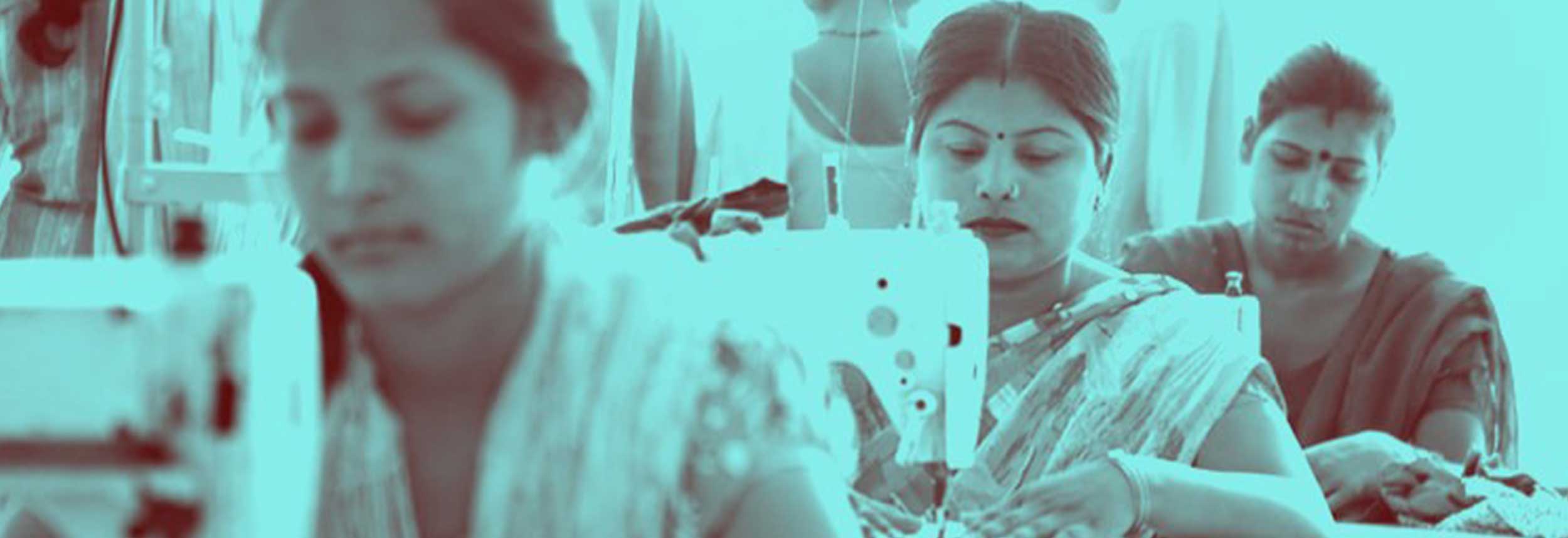
Our longest engagement has been focused on workers in the Bangalore region of the southern state of Karnataka. The garment sector in Karnataka ranks second position in India’s garment exports, and contributes 20% of India’s overall garment production. Bangalore’s outskirts are home to around 1,200 garment factories, employing approximately 500,000 garment workers, of which a majority (90%) are women. Employers prioritise recruiting women workers as social norms allow for lower wages, and they are less likely to unionise than their male counterparts. Despite India’s national garment industry being covered by the rather robust labour legislation in India, enforcement has been tardy, and the ‘race to the bottom’ leaves workers to bear the brunt of the industry’s power dynamics.
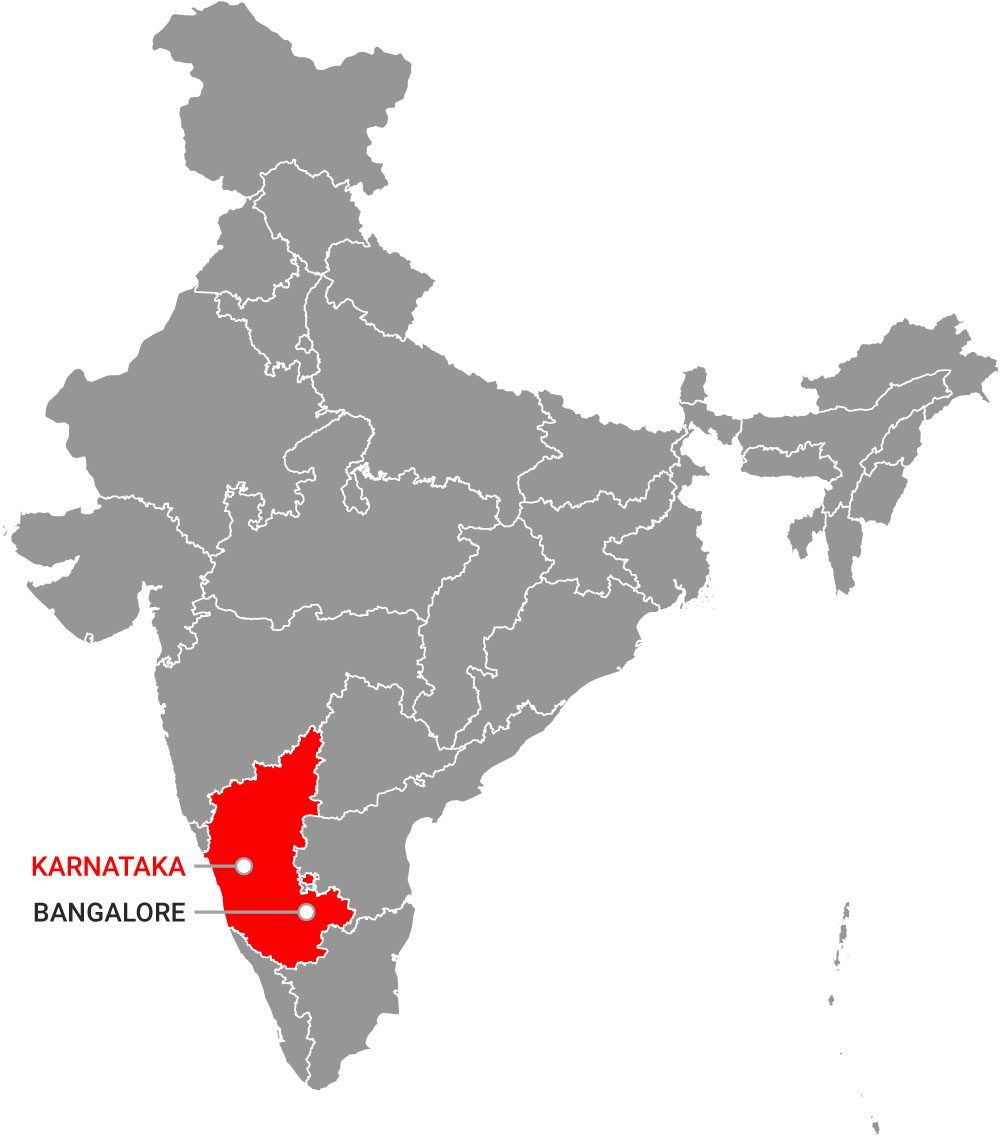
%
The garment sector in Karnataka ranks second position in India’s garment exports, and contributes 20% of India’s overall garment production
%
Bangalore’s outskirts are home to around 1,200 garment factories, employing approximately 500,000 garment workers, of which a majority (90%) are women
Cividep was among the first to write on the now ubiquitous phenomenon of increasing numbers of migrant workers in the city’s factories — our reports led to clothing brands H&M and C&A making commitments to implement audit processes for hostels run by their supplier factories. Cividep supports a Worker Resource Centre (WRC) which provides access to legal and personal counseling, as well as an opportunity for migrants to interact with local workers in an otherwise difficult environment.
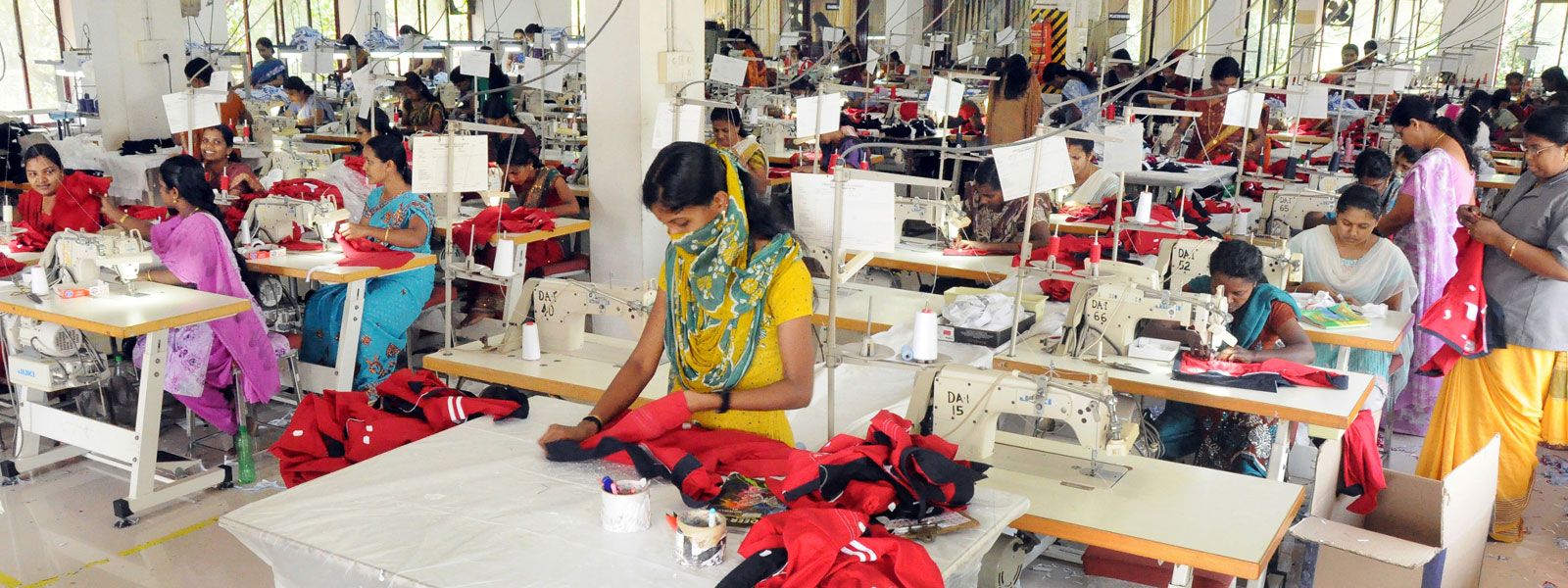
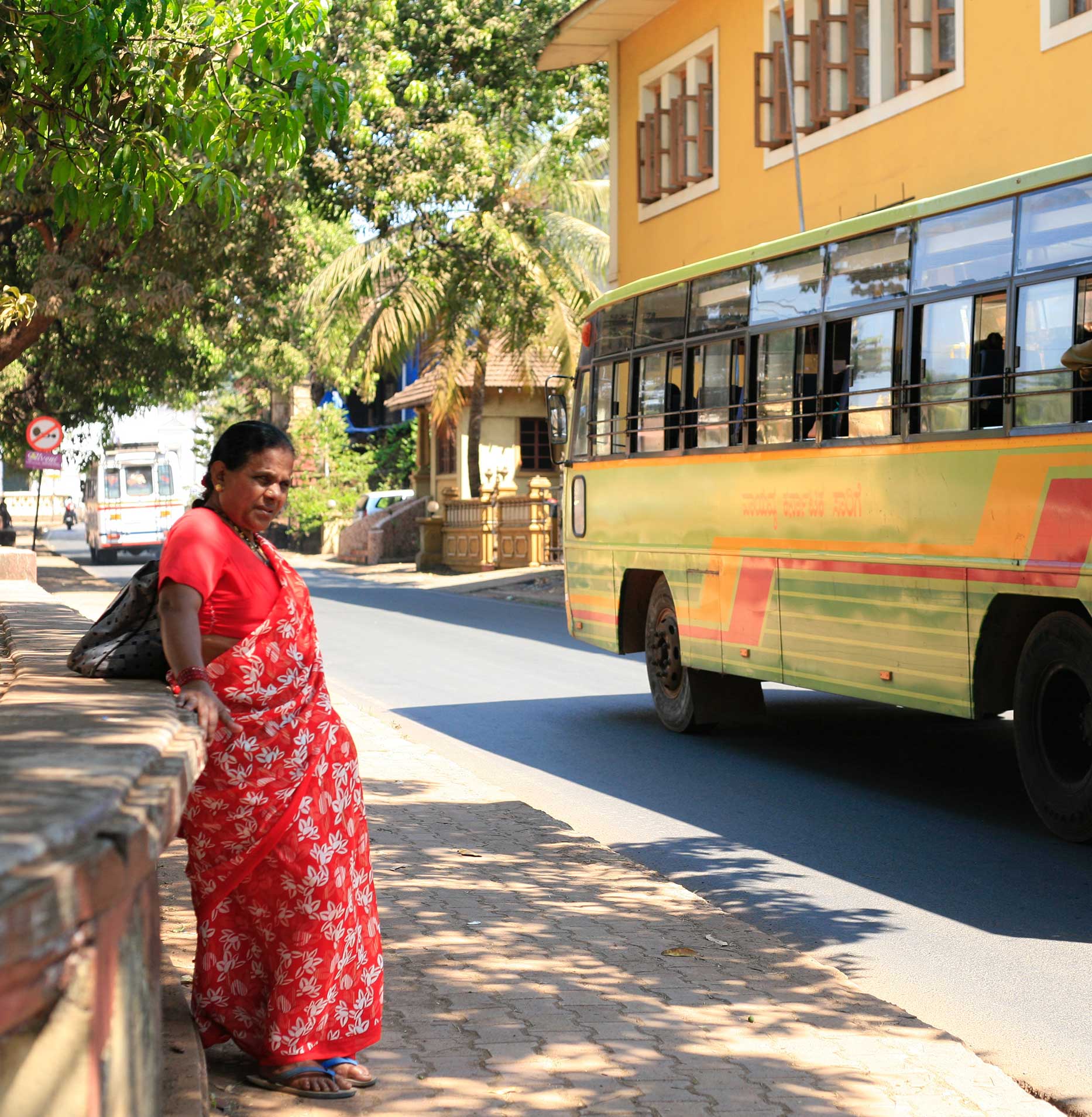
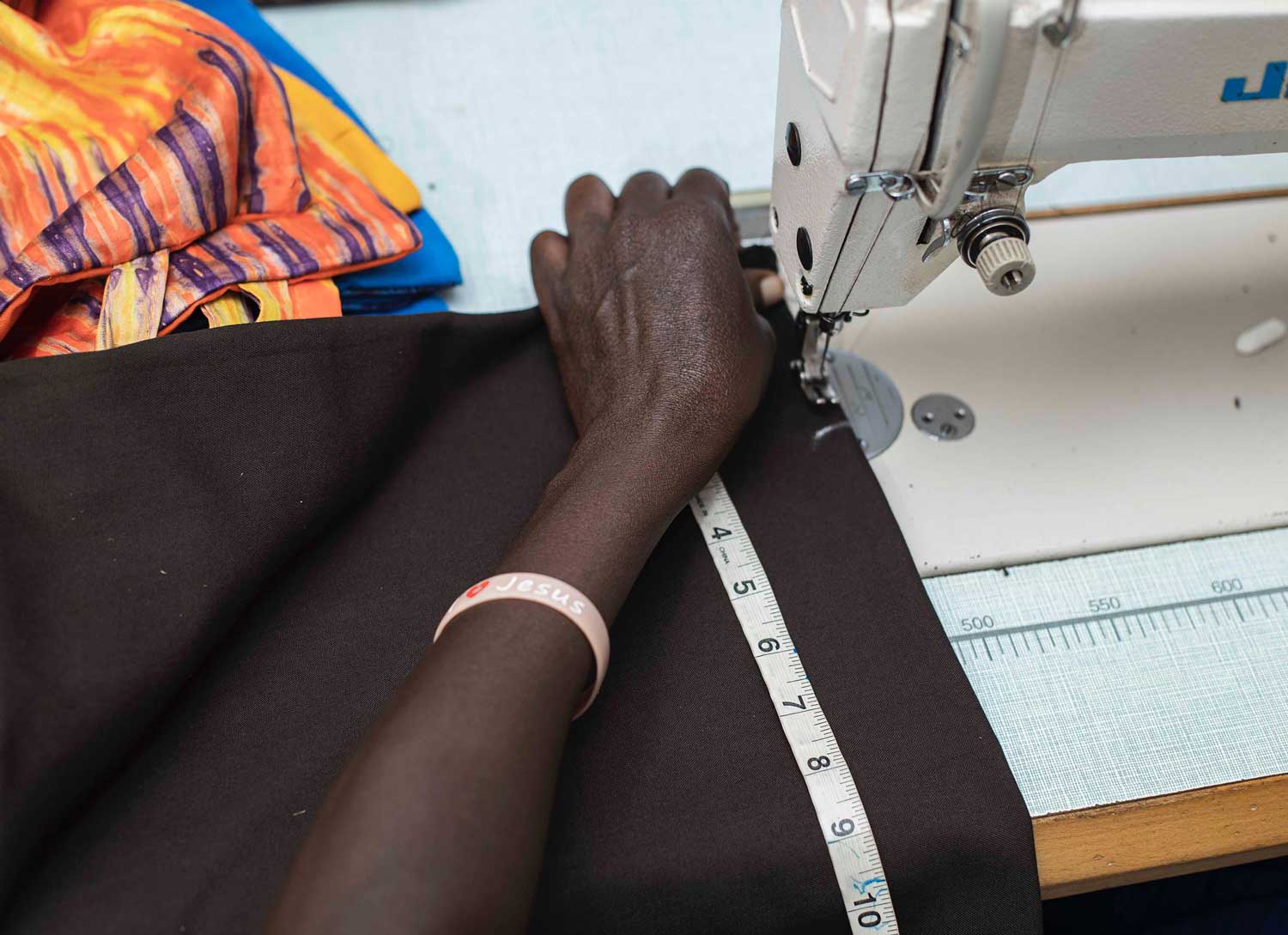
Women workers bear the cumulative burden of factory work and unpaid reproductive and care work. Our research on factory childcare facilities, followed by advocacy with C&A to improve the quality of crèches in four of their supplier factories, has been one of our biggest successes in advancing support for working women. Subsequently, C&A implemented a pilot initiative to investigate into its factories’ childcare facilities, and spearheaded improvements in six existing crèches. Along with Fair Wear Foundation (FWF) and Fair Labor Association (FLA), Cividep has maintained pressure on Bangalore’s garment industry since 2012 in regards to the issue of childcare, and we have seen anecdotal evidence that crèches now exist in most export-oriented factories in the city.
Cividep prioritises a systemic approach in its work, tackling institutional shortfall in grievance redressal from multiple angles. In cooperation with the Fair Wear Foundation, we have undertaken work aiming at reducing the shopfloor harassment of women garment workers. We conduct training for factory managers, supervisors and workers on harassment issues, assists factories to set up functional anti-harassment committees, and operate a complaint number for workers to report grievances. We have also leveraged state bodies such as the National Commission for Women to assist workers in filing for and successfully winning a few cases of wrongful dismissal and reclaiming wages.
Research on non-judicial grievance mechanisms and the extent of their effectiveness is also key. Since October 2018, Cividep has been working with the Wales Institute of Social and Economic Research, Data and Methods (WISERD) and Cardiff Business School on the Operationalising Labour Rights (OLR) project, as part of which we gather and analyse data on whether and how garment workers in Bangalore are able to gain access to remedy (that is, the steps that are taken to prevent, investigate, punish and redress business-related human rights abuses) at a workplace level. The project’s findings have been presented to the German Sustainable Textile Partnership in April 2020, and we’ve contributed to the third phase of the United Nations Office of the High Commissioner Human Rights Accountability and Remedy Project (ARP III).
The last 5 years in particular have focused on a host of capacity building activities for our various stakeholders. This includes training women workers in technical and non-technical skills for them to be able to take up supervisory roles in factories, training factories to set up functional ICCs (Internal Complaints Committees), and various training programmes and advocacy activities targeting brands and factories.
Electronics

In India’s growing electronics manufacturing industry, employers actively hire young, first-generation workers with limited knowledge of their rights and entitlements as a strategy to keep accountability and costs low. Many companies exclusively recruit young women between the ages of 18 and 25, but do very little to support them or account for their vulnerability. Factories that employ over 6,000 workers (90% of whom are female) do not provide creche or childcare facilities despite the clear legal requirement to do so. None of the factories in the region (all of whom employ over 50 employees, which is the legal requirement for creche) provide childcare facilities to employees today.
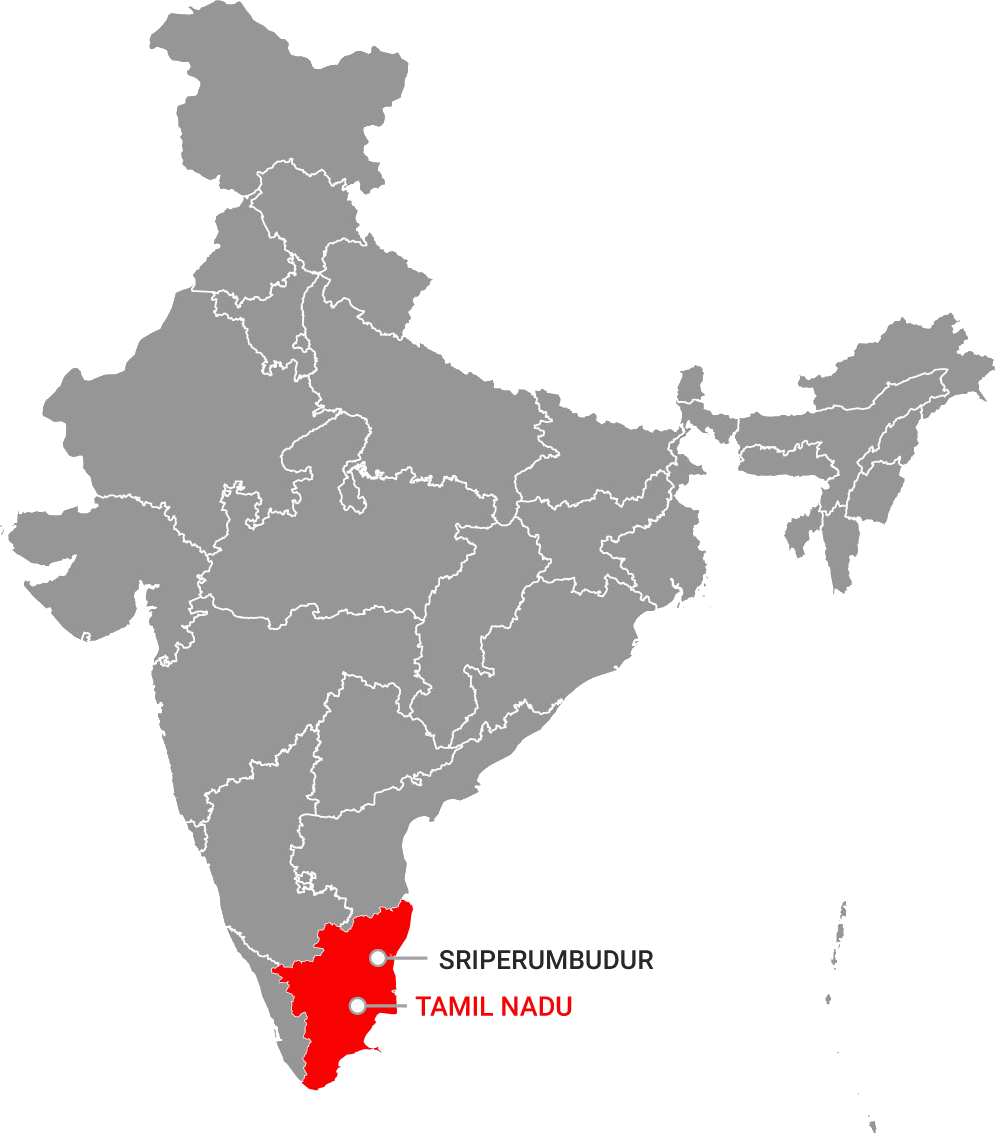
%
Factories that employ over 6,000 workers (90% of whom are female) do not provide creche or childcare facilities despite the clear legal requirement to do so
These workers not only face differential treatment in terms of benefits, job security, and wages but also, have no avenue to voice grievances. This fundamentally affects their ability to form close connections with their workplace, which then undermines their capacity to bargain collectively for rights and entitlements. Existing internal grievance mechanisms too, which are mandated by law (works committees, GRC, safety committees, ICC), are either absent or ineffective and usually not accessible to temporary workers.
For over a decade now, Cividep India has been involved in carrying out research, training, and advocacy programmes on working conditions within electronics factories situated in and around Sriperumbudur, Tamil Nadu. When Cividep first began engaging with workers in the region in 2006, the focus was towards increasing awareness among workers on labour laws, keeping abreast of labour issues through regular research projects, and involving stakeholders from different sides of the industry in evaluating and addressing labour issues.
Following initial forays into the sector, Cividep conducted various research projects between 2007 and 2013, which addressed themes of poor working and living conditions, sub-standard wage levels, the responsiveness of companies to challenges faced by workers. From interactions with workers as part of the research, the need for building solidarity and ensuring effective avenues for grievance redressal became apparent. In 2014, Cividep began a five-year project in the electronics sector partnering with the GoodElectronics Network. Cividep is a monitoring partner in India for Electronics Watch, an independent monitoring organisation that assists public sector buyers to meet their responsibility to protect the labour rights of workers in global electronics supply chains. In this capacity, we have been carrying out worker education and research since 2014, on prevailing conditions and challenges faced by electronics workers in manufacturing clusters. Cividep is also represented on the Board of Trustees at Electronics Watch.
Considerable progress has been made in reaching out to women workers, which was essential given that a sizeable proportion of the workforce is comprised of young female workers. Since women workers are often wary of individually approaching the management with work-related grievances, our strategy has been to emphasize the importance and potential of collective bargaining.
In 2013, Cividep established a Worker Resource Centre (WRC) in Sriperumbudur, envisaged as a gathering space to provide workers with a platform to voice and discuss common grievances, and to build awareness on their rights and fair working standards. In 2016, the WRC was relocated to the nearby town of Sunguvarchatram, in an attempt to reach a wider range of workers from different factories. The move enabled the expansion of Cividep’s network of contacts, along with increased visibility and awareness of our activities among workers in the area.
Building upon experiences garnered during projects in the past, future activities would be structured around using the WRC as a base for building solidarity and awareness among workers while drawing upon contacts with international partners and networks towards facilitating engagement with brands and suppliers.
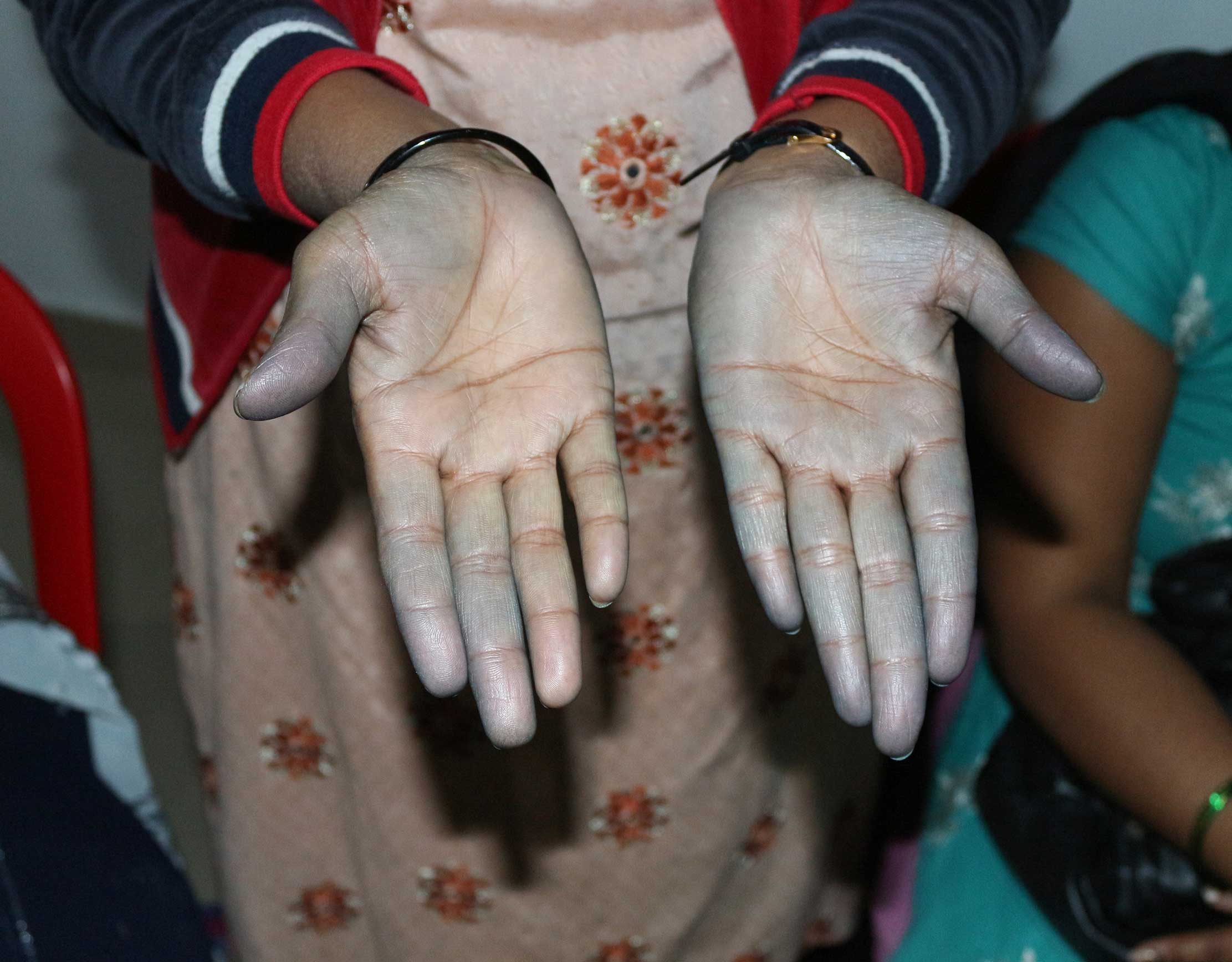
Leather

India’s leather and footwear industry is one of its most labour-intensive manufacturing sectors. According to the Ministry of Commerce and Industry, the Indian leather sector employs 2.5 million persons, with the organized tannery sector alone employing 100,000 persons. Tamil Nadu, Uttar Pradesh, and West Bengal are the leading leather producing states and are home to large numbers of leather tanneries and footwear making units.
Known to employ a large number of undocumented informal workers, including women homeworkers, the industry has seen considerable change over the last three decades: it has gone from a source of raw material exports to a major exporter of value-added leather products. The industry exhibits poor labour and environmental standards, marked by lax enforcement of rules and regulations, use of primitive technology, non-compliance to safety norms, poor handling of tannery effluents and solid wastes, and health risks to workers and local communities. A vast majority of workers in the leather industry, and particularly in the tannery sector, belong to socially and economically backward classes. In Tamil Nadu, close to 80 per cent of leather workers belong to Dalit communities. Social factors such as religion and caste continue to play a major role in perpetuating poor labour conditions in the sector and as informal workers with little opportunity to collectivise, they are particularly vulnerable to exploitation.
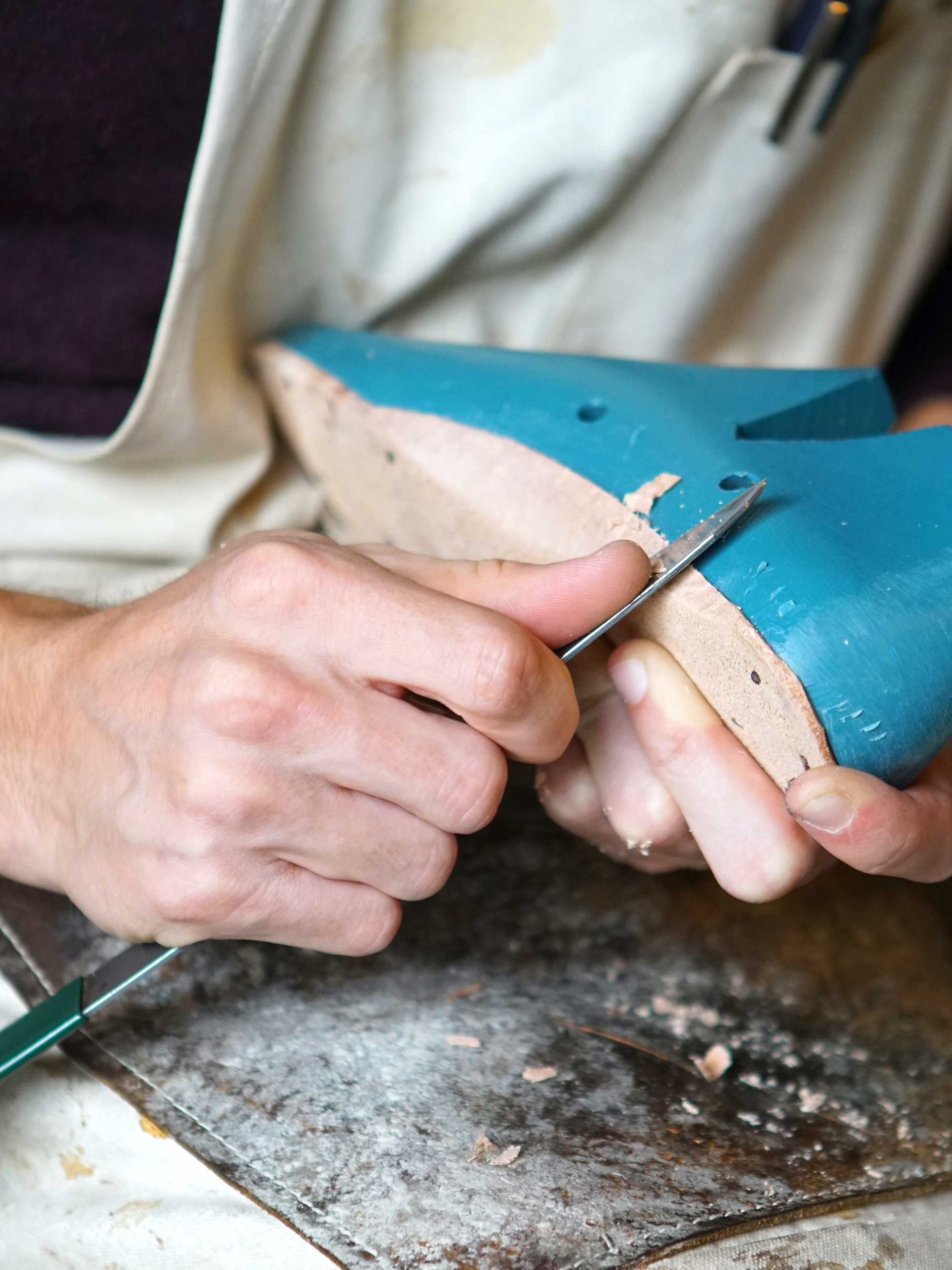
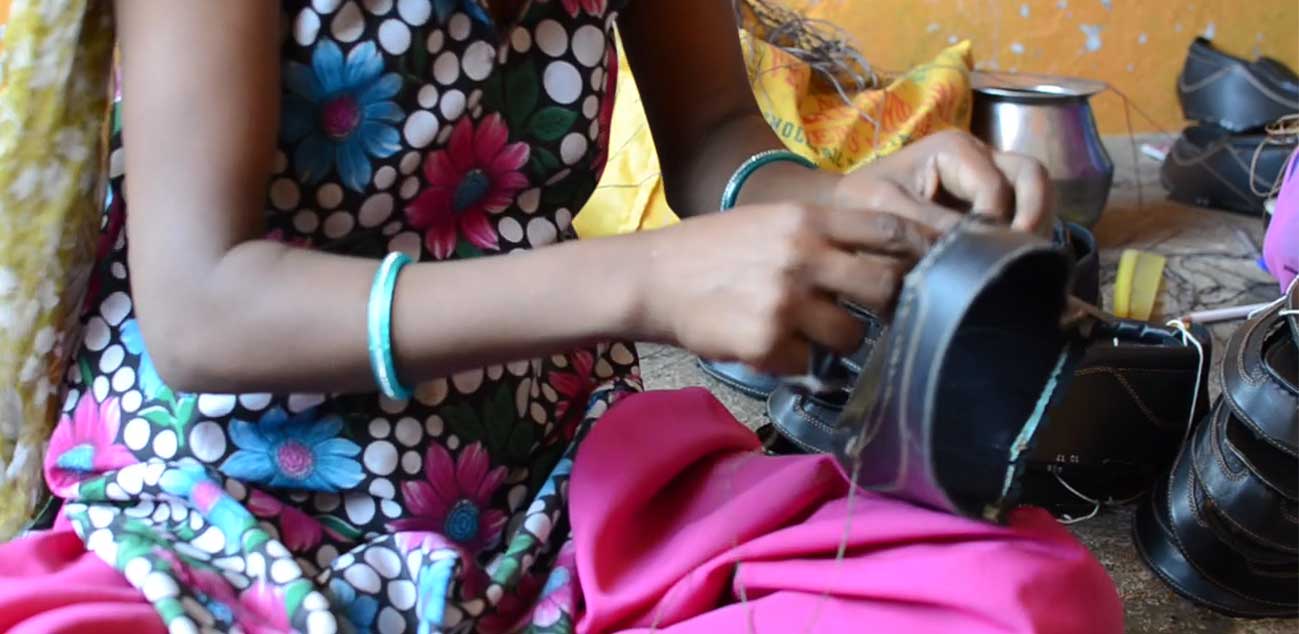
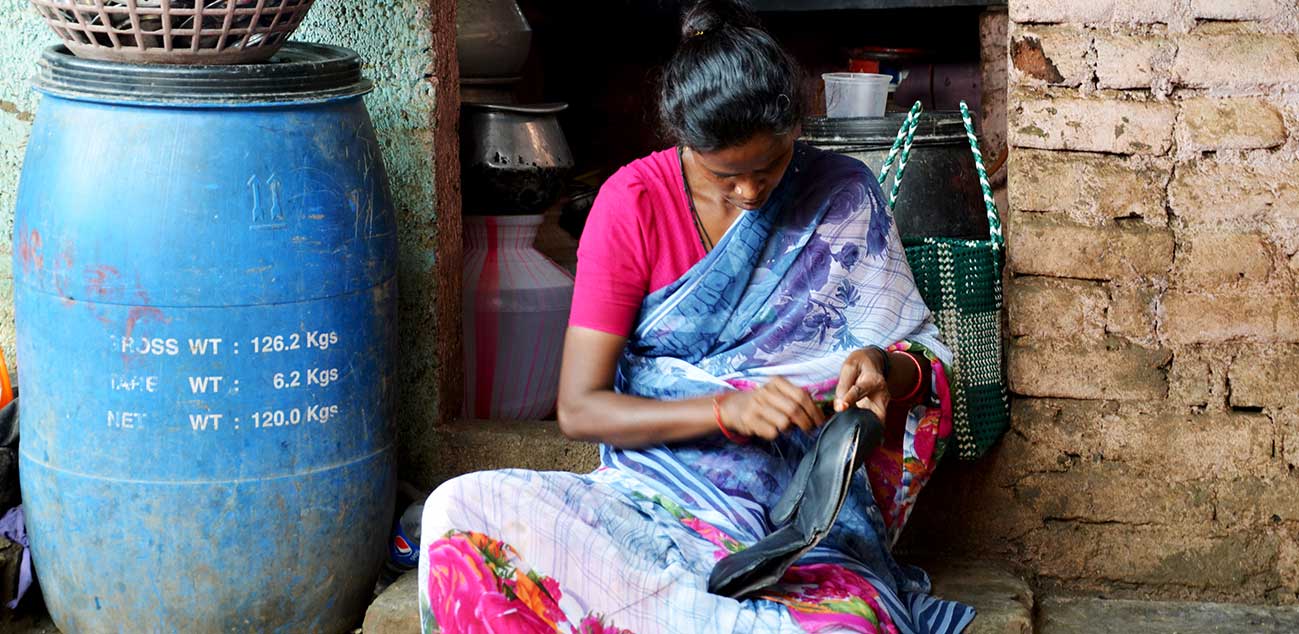
Cividep began its research and advocacy in the leather sector in 2013, primarily in Ambur, Tamil Nadu, a major leather manufacturing hub. Several studies published on working conditions in tanneries and shoe factories, as well as the particular struggles of homeworkers employed in the leather sector, have brought greater awareness to the significance of the industry’s human and environmental impacts. We have collaborated in our efforts with several national and international organizations, including Homeworkers Worldwide, Südwind (Austria), Future in Your Hand (Norway), INKOTA and Südwind Institut (Germany), Fair Action (Sweden) and the Society for Labour and Development (New Delhi).
Home-based workers (or homeworkers), located on the lowest tier of international supply chains, are some of the most vulnerable workers and face a particularly complex set of challenges. They are not directly employed by the factories directly, not recognised as workers with entitlements, and rarely covered by government and company labour policies. Most are women who work alone in or near their homes, for extremely low piece-rates and a very irregular flow of work. Their informal status gives them little opportunity to collectivise, making them particularly vulnerable to exploitation.
Cividep began supporting the leather sector’s home-workers from 2015 onwards. For this purpose, we set up a workers’ resource centre (WRC) in Ambur, which hosts periodic training programmes on gender, labour rights, and health, intending to build leadership amongst workers. Other projects such as Multi-stakeholder Partnership (MAP) and Together for Decent Leather have worked to achieve better transparency, working conditions, recognition and compensation for India’s leather workers.
Cividep’s efforts to improve working conditions in the leather sector have involved working alongside brands to map the global leather supply chain, encouraging more rigorous and effective due diligence and ultimately more equitable employment. Our work in this regard has led to an increase in piece-rates for homeworkers supplying to the brand Pentland, with the company also implementing robust and transparent documentation of its supply chain. Cividep has also collaborated with Traidcraft Exchange and Homeworkers Worldwide in the Hidden Homeworkers Project to develop a toolkit to increase transparency in supply chains that employ homeworkers in the fashion and footwear sectors.
Plantation

Cividep investigated the working conditions and prevalent health and safety issues in some of the prominent estates in the Nilgiris region as part of a 2018 project in partnership with Finnwatch. The findings revealed that a significant proportion of workers bear excessive workloads, and carry out strenuous physical labour, leading to acute health problems that are directly attributable to inadequate safety standards. Some key occupational health issues include direct exposure to pesticides and chemicals without the requisite protective equipment, musculoskeletal disorders from carrying excessive weights for prolonged periods, attacks from wild animals, contaminated drinking water, and lack of access to first-aid facilities and proper medical treatment in case of accidents.
As a result, several workers suffer from joint pain, rashes and skin diseases, back problems, gastric disorders, high blood pressure, strokes, malnutrition, weakness and anaemia. Among women workers, in particular, there was a high incidence of reproductive problems and maternal mortality boils due to chemical exposure, chest tumours, uterus and cervical cancer. The lack of adequate infrastructure to sufficiently address these occupational health challenges exacerbates the difficulties borne by plantation workers.
While the tea industry is rapidly burgeoning in India, tea plantation workers often live in substandard conditions and are regularly exposed to occupational hazards. Even though production relies on their ability to work efficiently and safely, they are an inherently vulnerable community. Cividep is committed to addressing issues in occupational settings and advocating for workers’ rights and environmental standards.
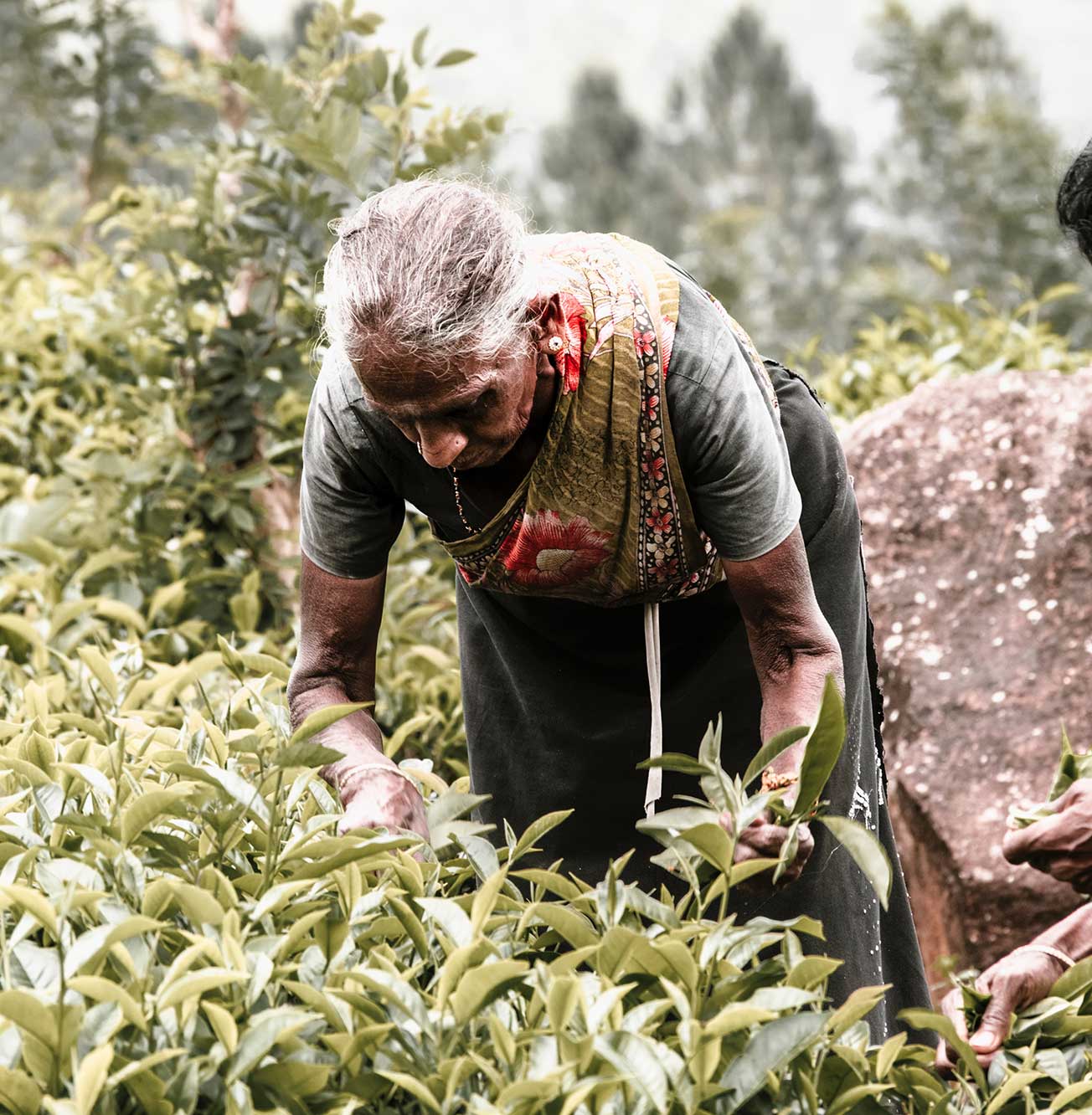
Over the past few years, Cividep India has been able to strengthen and build upon its engagements within the plantation sector, among coffee estates in Karnataka’s Coorg district, tea plantations in the north-eastern state of Assam, as well as tea plantations across Tamil Nadu.
Cividep has fostered organisational knowledge, capacity, and expertise to assess, evaluate, and respond to rising occupational health and safety (OHS) challenges through its drive to consider and act on these issues across all the sectors in which it works. Cividep’s collaborative training programmes and research on OHS have helped it to benefit and learn from the experience of its partner organizations, further developing strong connections with workers. Fostering these relationships is a key component of Cividep’s efforts to aid in the development of a working framework for OHS that identifies key health hazards and responses to mitigate them.
